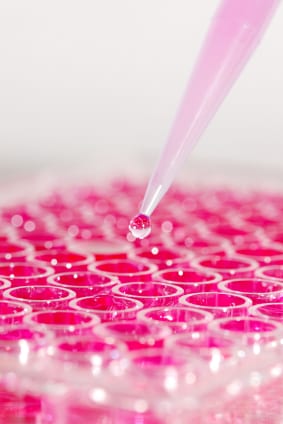
The exact causes of Crohn’s disease remain a mystery, but scientists do know that genetic factors play an important part. More than 30 variations have been associated with increased risk for the disease, but changes in one gene, NOD2, have been found to be especially critical. Three different variants in this gene have been associated with significantly increased risk for developing the disease. It’s estimated that 10-15% of people with Crohn’s disease have two copies of one of these variants.
Because changes in NOD2 are associated with so many cases of Crohn’s disease, medications made to interact with the protein the gene encodes would seem to be obvious candidates for drug development. But the NOD2 protein doesn’t have the type of function that can be modified by a drug.
A new avenue of drug research may have been opened, however, thanks to a study from Derek Abbott and colleagues at Case Western Reserve University. In a paper appearing in the August issue of Current Biology, they show for the first time that a protein called ITCH can influence NOD2 biological pathways. This is important because, in the parlance of pharmaceutical development, ITCH is a “druggable” target.
NOD2 binds to bacteria that make their way into cells, setting off signals that activate the immune system. Research has shown that the Crohn’s disease-associated NOD2 variants decrease the signals that go through a particular protein called NFkB. Abbott’s lab found that ITCH also decreases NOD2-dependent NFkB signals. This is significant because studies have shown that increased NFkB signaling can help slow down the progression of Crohn’s disease.
“The thought is that if you could identify patients with NOD2 polymorphisms who also displayed early gastrointestinal trouble, you could block ITCH to increase NFkB signaling and not let the Crohn’s disease get to the acute stage,” Abbott said in an email.
Abbott and his fellow researchers are in the very early stages of looking for drugs that could be used to inhibit ITCH and possibly be useful in treating Crohn’s disease. But the road to drug discovery is a long one. ITCH interacts with many other proteins in cells and it’s not yet clear if blocking it would have unwanted effects on other important biological pathways. However, in the future this research could lead to a valuable drug against Crohn’s disease – at least for the 10 to 15% of patients who have variants that cause decreased NOD2 signaling.



